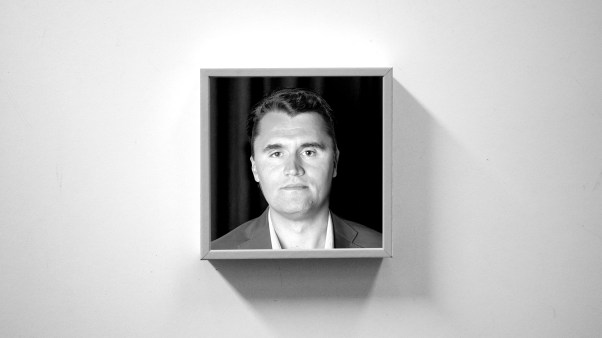Philip Yancey is a columnist and editor at large of Christianity Today and cochair of the editorial board for Books and Culture. His books include Soul Survivor: How My Faith Survived the Church (2001), Reaching for the Invisible God (2000), The Bible Jesus Read (1999), What’s So Amazing About Grace? (1998), The Jesus I Never Knew (1995), Where is God When It Hurts (1990), and many other books.
His latest book is Rumors of Another World: What on Earth Are We Missing? (Zondervan).
Unlike many of your previous books, this one is written for people on the “borderlands of belief.” Who are those people?
Borderlands are marginal area between two clearly defined areas, like the areas some countries are still fighting over. And I find people—actually, I’m in this category—who because of wounds from the past are fleeing the church or are recovering from the church, but still believe that was something that was touched deeply in their soul.
Then there are other people who don’t know what to do with the church. It seems like a totally alien experience to them. They go and see these people raise their hands, and they stand up and sit down, and they don’t know when to stand up or sit down and it seems like this strange language. It’s another planet.
So the people I direct this book to are in the borderlands, some of them going away from the church, some of them going very warily toward the church, and both are the kind of people you meet who say, “I’m spiritual but not religious.”
What was the trigger for Rumors of Another World?
C.S. Lewis wrote a book called Mere Christianity. And I suppose this is my Even More Mere Christianity. I think the church has missed the boat in trying to figure out how to put together the invisible world with the visible world. We all live in this visible world that we can touch and smell and see and hear. And yet, as Christians, we believe that there’s also an invisible world going on that’s more important and more long-lasting than this world. So how do we live in the middle of this visible world by the rules of the invisible? That’s what I’m struggling with.
And I think the church very often flees this world. It’s scary.
So you take something like sex, Oh, it’s dangerous. You can get in trouble so we’ll just, present God as anti-sex. And the church has that reputation of being anti-sex. Well my goodness, God created sex. God invented it. And I think he did it with a sense of humor, best I can tell. And rather than fleeing the visible world, because we don’t understand it or because it’s dangerous to us, I would rather understand each of those things as rumors and track them to our source.
And so thoughtful people, as they kind of get this sense of rumors or inklings, and they begin to suspect that there is a God.
They do. And then every once in awhile something happens that calls into question our whole culture. September 11, 2001, was one of those events. You may remember the week after September 11, all commercials went off television, all comedians went off television, all sporting events were cancelled. That was something: Here we’re an entertainment culture, a media culture, a commercial culture, but at a moment of national crisis, it exposed how hollow those things are. We were better off without them for that week of intensity.
Evil is a kind of rumor. When something like that happens, when people decide to plow into a building and kill 3,000 people, people say, “That shouldn’t be. There’s something wrong with that. This is not the way the world is supposed to be.”
I as a Christian say, You’re absolutely right. That is not the way the world is supposed to be. That is a kind of rumor.
One of the things that I hope people who are followers of Jesus hear in your whole idea of rumors is that these rumors are the portals for conversation.
Jesus was good at picking up on rumors in his time and exploiting them into conversations about the stuff that people wanted to talk about, but didn’t know how to talk about.
I was brought back to faith after being badly scarred by those rumors. If you asked me, “Okay Philip. You had this terrible church you keep complaining about. Why do you believe? Why did you come back?”
It wasn’t Billy Graham, and it wasn’t the Bible, and it wasn’t a gospel tract. I was pretty inured to those kinds of things.
It was three things really: the beauties of nature, classical music, and romantic love.
And I came across a quote from G.K. Chesterton: “The worst moment for an atheist is when he feels a profound sense of gratitude and has no one to thank.”
I realized that the world was not the world I had heard about in this tiny little angry church growing up. The heart of the universe was not a frown, it was a smile.
God was not my enemy, God was wooing me, and He was wooing me through these rumors, these signs of goodness that were all around me.
How do you summarize the message you’re trying to communicate in your book?
I am convinced now, for the first time really in my life, that God has the very best life in mind for us. A lot of Christians—and I have been there—go around with their head down thinking, Well, we only have two-thirds of a life. Those other guys are having all the fun, you know. But I can’t imagine someone following Jesus around and saying at the end, “Boy, think of all he was missing out on.” In fact they would say, “Think of all I’m missing out on.”
Copyright © 2003 Christianity Today. Click for reprint information.
Related Elsewhere
Visit DickStaub.com for audio and video of his radio program (4-7 p.m. PST), media reviews, and news on “where belief meets real life.”
Yancey’s Rumors of Another World is available from ChristianBook.com and other book retailers.
See also today’s excerpt from Rumors of Another World.
Yancey is a columnist for Christianity Today.
Christianity Today has earlier excerpted several of Yancey’s other books, including Reaching for the Invisible God, Soul Survivor: How My Faith Survived the Church, The Bible Jesus Read, and What’s So Amazing About Grace?
Recent Dick Staub Interviews include:
Ken Gire’s Lord of the Dance | Patch Adams and T. S. Eliot teach us to twirl with Jesus, says the author (Sept. 23, 2003)
Jerry Jenkins’s Solo Apocalypse | His new novel, Soon, imagines a world where religion, blamed for war, is banned (Sept. 16, 2003)
Why Frederica Mathewes-Green Loves Icons | Yes, we ask the saints to pray for us, she says. They are still living members of the church after all. (Sept. 9, 2003)
Sheila Walsh Says Stop | The author, singer, and popular speaker talks about learning to put praise above performance (Sept. 2, 2003)
Trusting in a Culturally Relevant Gospel | Os Guinness says that evangelicals have never strived for relevance in society as much as they do now. Ironically, he says, they have never been more irrelevant (Aug. 26, 2003)
The Long War About Science | Larry Witham, the author of Where Darwin Meets the Bible and By Design, talks about faith, science, and how the battle has evolved. (Aug. 19, 2003)
Kevin Leman Talks About Sex, Baby | The author of The Birth Order Book looks at the private lives of Christian couples in Sheet Music: Uncovering the Secrets of Sexual Intimacy in Marriage. (Aug. 12, 2003)
Why God is like Jazz | Donald Miller, author of Blue Like Jazz, talks about why Christians need writers who honestly deal with their faults and why penguin sex is an apt metaphor for believing in Christ. (Aug. 5, 2003)
A Gerontologist Gets Older | David Petty, author of Aging Gracefully, has long taught about the process of aging. Now, he is personally learning that one of the most important aspects is the spiritual side. (July 29, 2003)
Carmen Renee Berry’s Unabashedly Consumerist Handbook to Ecclesiology | The author of The Unauthorized Guide to Choosing a Church helps seekers find their best congregational fit. (July 22, 2003)








